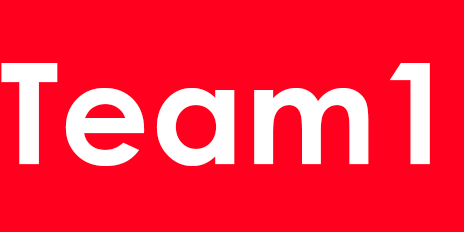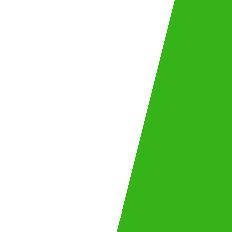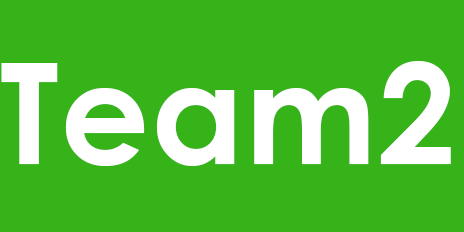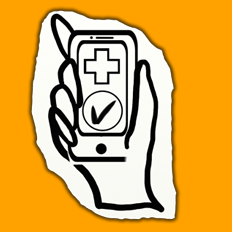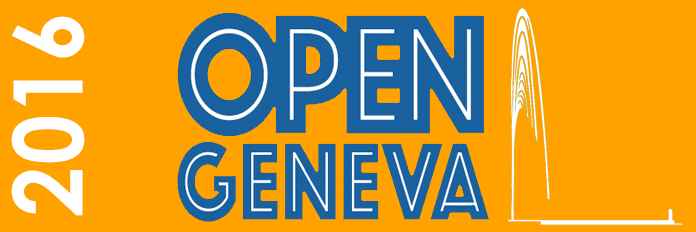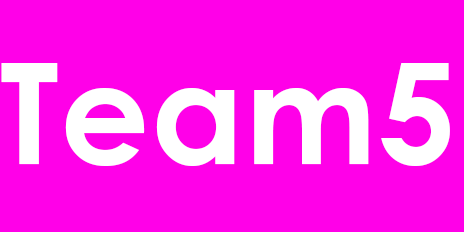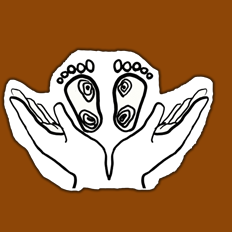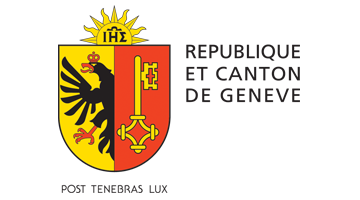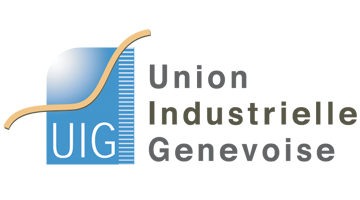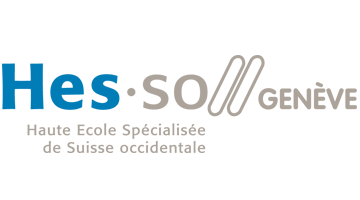Open Geneva 2016 Campus Biotech
16.-18.04.2016 – Campus Biotech, Geneva, Switzerland
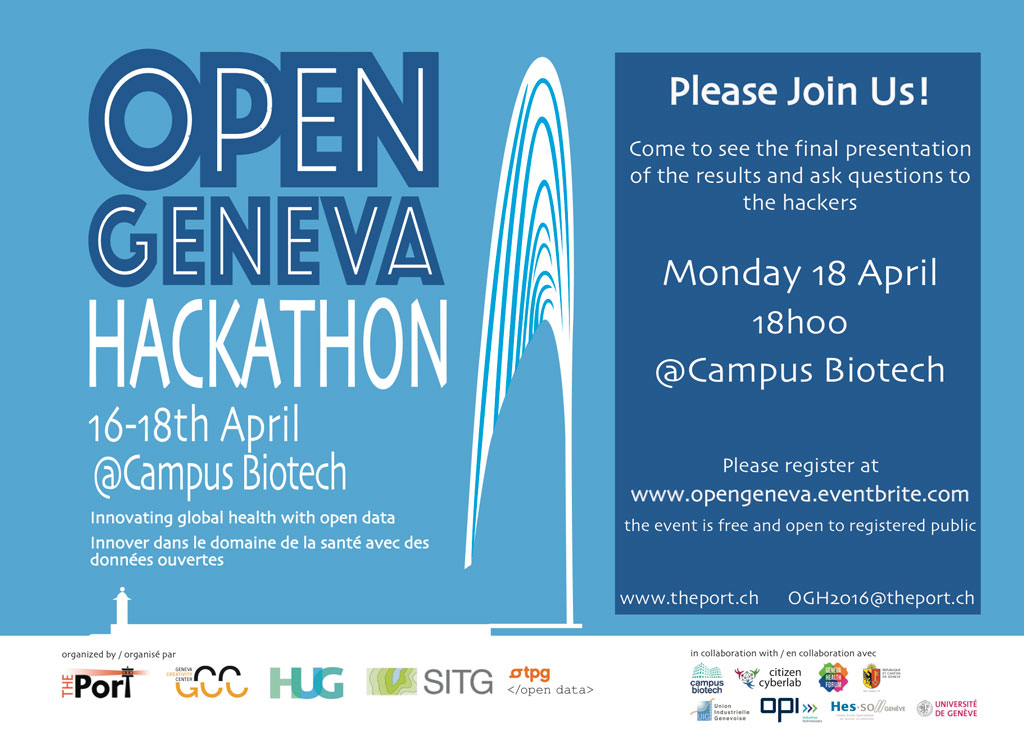
Register free for the Final Presentations here
If the world needs a change, why not you? Why not now?
Topics
-
Daily journeys in urban settings for the visually-impaired can be complex. High-granularity cartographic data of the canton of Geneva is available, including precise delimitations of buildings and public spaces (driving lanes, curbs, crosswalks, parks…). This information could be precious to the visually-impaired, if used and delivered in a safe and adapted way.

-
Geneva’s emergency call center gets hundreds of calls every day. Data concerning these calls is stored, and can easily be anonymized for analysis. We propose to use this available data to create a tool capable of forecasting emergency calls, in order to optimize emergency units movements and activity.
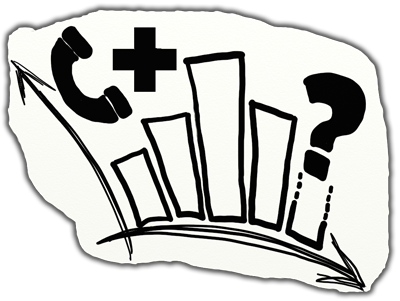
-
Inspired by hotel or aviation business, an innovative, user-friendly application (via internet & smartphone) and/or a “speedy admission” terminal for patients can be developed to fill in their own data. This would save time at hospital arrival and make patients more involved in preparing their hospital stay. This application could then also supply other information to the patients such as appointement details, schedule changes, personnal belongings to take or medical information.

-
The big challenge is that there is no strong algorithm/software available to plug all health data into in order to optimize the distribution of valuable and scarce human resources, especially in developing countries. The goals is to develop a software program with a sophisticated algorithm where targets, health trends and other metadata can be imported and a (human) resources allocation suggested.

-
One of the most pressing “humanitarian” problems we face in Switzerland and developed nations is the very high rate of suicide. What can technology do about this? There would be ways to identify certain behaviour patterns of suicidal persons and then detect them in social medias. An “emergency phone” in train stations would help. There would be other “hardware” that can be implemented.

-
2-3 babies out of 1000 births are born with clubfeet. The fine treatment manipulations of the dynamic correction method are difficult to learn and only a few very experienced physiotherapists are able to perform the method reliably with the high precision needed. The aim of this topic is to develop 3-d imaging of the applied forces and their exact applications points on a newborn foot – with the goal of having a didactical aid to teach this intricate physiotherapeutic method and to assure quality control.

Participants
All participants to the Open Geneva Hackathon 2016 contribute in a personal capacity. Their views are their own and do not represent the positions of their organisations, companies, institutions and countries!
Agenda
(Details subject to change)
-
Saturday 16th of April
08h30 Registration & Breakfast
09h30 Kick-off Meeting:Welcome
Introduction to Hackathons
Rules
Team Pitches
Motivational Talks
Group Picture10h30 Hacking
13h00 Lunch
14h00 Hacking
19h00 Dinner
20h00 Hacking
24h00 Site close -
Sunday 17th of April
08h00 Site open
08h30 Breakfast
09h00 Hacking
12h00 Midterm Review
13h00 Lunch
14h00 Hacking
19h00 Dinner
20h00 More Hacking
24h00 Site close -
Monday 18th of April
08h00 Site open
08h30 Breakfast
09h00 Hacking
13h00 Lunch
14h00 Preparation for Final Presentation
18h00 Final PresentationWelcome words
Keynote speakers
Team presentations
Closing and wrap-up19h30 Apero & Afterparty
22h00 End of the event
Tuesday 19th of April
Presentations of the results as side events at Geneva Health Forum (time tbc) and the 25th Anniversary of the SITG (16:20-)
Team: Blind Navigation
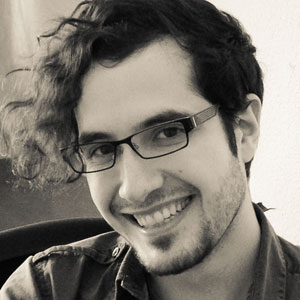
Alejandro Avilés (ES)
Alejandro (@OmeGak) is a computer scientist currently working as a full-stack web developer at CERN for the Indico project and completing a Master in Intelligent Systems at University of Granada. He previously did research on swarm intelligence for route discovery and navigation in natural disasters at Tokyo University of Science and was one of the founding members of Blindstore. He loves designing for users and his weapons of choice are Python, Javascript, CSS and thinking
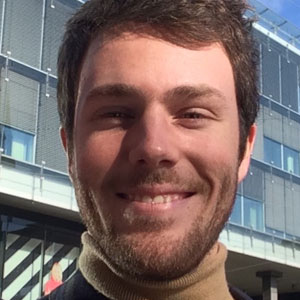
Arthur Touchais (CH)
Arthur was born in Buenos Aires in 1990 and has been living in Switzerland since age 5. He is a filmmaker who attended ECAL (Lausanne university of art and design). He co-founded Tolmao Ltd in 2014, a company producing fiction films, documentaries and commercial work for clients such as RTS, HUG (University hospitals Geneva), Bacardi or Firmenich. Arthur is fascinated by entrepreneurship and tech innovations, he recently participated to Lausanne Startup Weekend 2016 and won 2 prizes with an entertainment app concept. When he finds time, you can spot Arthur on the mountains freeskiing or underwater scuba diving.
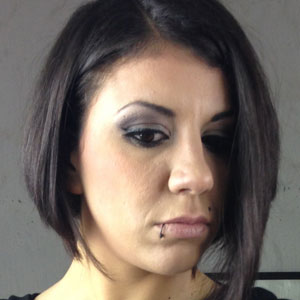
Gayane Azizyan (AM)
Gaia was born in Armenia, studied in the USA, and is now living in Sweden. She is a software developer with a Bachelor’s in math and a Master’s in IT Management. After working in the telecommunications industry for four years, she spent a year building an underwater robot as a hobby project and is now employed in the payments industry as a full stack developer. She is passionate about languages (both programming and the human kind) and everything related to space exploration.
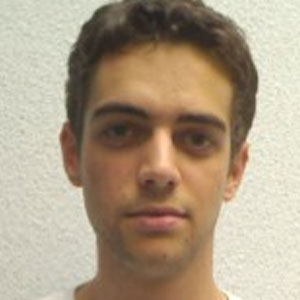
Jean-Baptiste Bonnamy (FR)
Jean-Baptiste is a mechanical engineer always eager to learn and he is currently working at CERN where he designs special handling equipments. Previously he has been involved in improving products and processes for Alstom Transport, as well as other projects related to transportation and open source technologies. He looks forward to be a part of this health related hackathon.
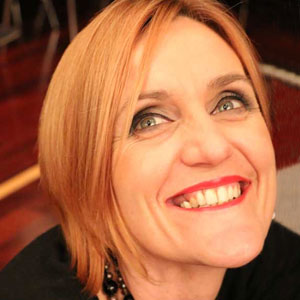
Marzia Del Zotto (IT)
After the master degree in Experimental Psychology at Trieste University (Italy), Marzia accomplished her Ph.D in Cognitive Electrophysiology at Milano-Biccoca University. She worked at the Center for Mind and Brain, (Davis, California University). Later, she flew to Geneva to develop new research at the Psychology Department of Geneva University. Recently, she has started a new employment at the Division of Medical Information Sciences (Geneva University Hospital), working on some ergonomic aspects of the health domain. See her profile here.
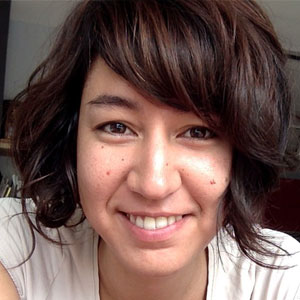
Mitsouko Van Assche (FR)
Mitsouko is a postdoctoral researcher at the University of Geneva (Switzerland). She studies spatial navigation in healthy people, pre-Alzheimer and stroke patients, using cognitive tests and neuroimaging. She has personal interest in the application of new technologies to improve human well-being.

Paul Brannigan (UK)
Paul is a serial Hackathon attendee with a handful of prizes to his name! An accountant by day, and a software developer in his spare time, he uses PHP and mySQL to build solutions for his own business. He first learnt to program in 1979 and is definitely “old school” with a passion for good RDBMS design. Paul is also a serial optimist and his motto and his blood group are the same, be positive! Follow him on Twitter.
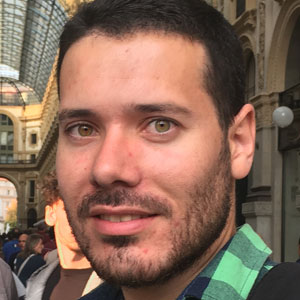
Tiago Araujo (PT)
Tiago holds a PhD degree in Biomedical Engineering. He developed electronic methodologies focused on human electrophysiology applications and joined the CERN Knowledge Transfer. Previously, he worked at Plux – Wireless Biosignals (Portugal), as a Hardware Engineer for 5 years. In this company he assumed development roles in broad areas of digital and analog electronics. Tiago was an invited Professor in FCT-UNL (Portugal), lecturing the Applied Electronics course and the Electrophysiology course. He was also co-supervisor of 6 master thesis in the field of biosignal acquisition and processing.
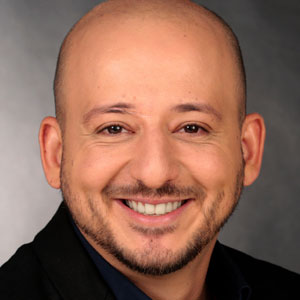
Walid Miled (FR)
Walid is a video game producer at Spiders making video games for next-gen consoles and PC. He is passionate about new technologies and man machine interactions and would love to get involved in virtual reality projects.
Team: Backstreet Forecasters
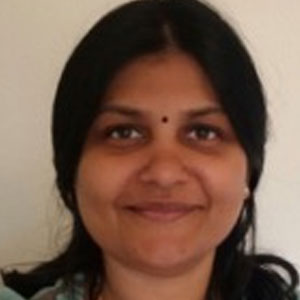
Amudha Ravi Shankar (IN)
Amudha is an architect & urban planner from India. She is a freelance GIS Consultant in Geneva. She had been part of crowd sourced attempt on mapping during the Chennai floods and Nepal earthquake. As an urban planner in India and Libya, she had been part of Disaster Management plans, master Plans and Traffic operational plans. As a volunteer and project assistant she was involved in content development of the CORE Humanitarian Training material in a NGO in Geneva and had assisted the GIS and Data Team of the Global Polio Eradication Initiative & Ebola Response, WHO, Geneva. Above all, as a mother of a six year old boy, she advocates against Medical labeling of kids.
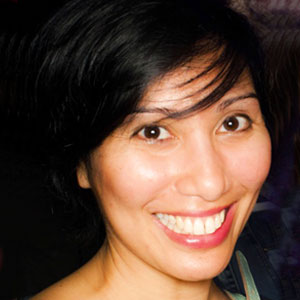
Anisah Alyahya (MY)
Anisah trained as a medical doctor at Imperial College London. Her experiences in infectious diseases in Kenya inspired her to pursue a PhD in microbiology at Yale. She then joined the biotech world to work on vaccine discovery, strategy and tuberculosis. Her search to go beyond the scientific method finally led her to Stanford where she learnt the basics of design research and methodology as new tools for framing and solving complex health challenges.
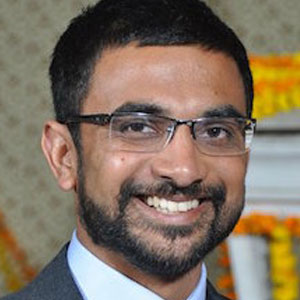
Borun Chowdhury (IN)
Borun is a fellow with CERN’s theoretical physics department. He completed his PhD in theoretical physics from the Ohio State University in 2008. His research interests include string theory, quantum aspects of black holes and early universe and astrophysics. He has 29 papers in international peer reviewed journals.
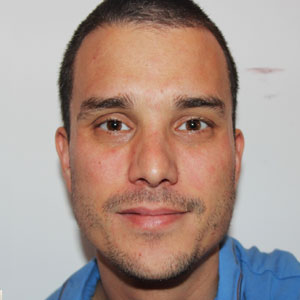
Damien Dietrich (CH)
Damien obtained a medical degree at the University of Geneva in 2010 and worked as an internal medicine and emergency medicine resident at Geneva University Hospitals, Monthey Hospital, Switzerland, and at Banka-Bafang Ad-Lucem Hospital, Cameroun. He then completed a MD in cytokine biology at the University of Geneva. His main topic of interest is about how new technologies may promote health and he is currently working at the service of cyber health and telemedicine, HUG, Geneva.
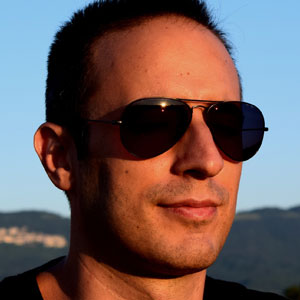
Daniele Raffo (IT)
Formerly a CERN civil servant, Daniele holds a Ph.D. in Computer Science focusing on the security of wireless networks. He has experience in the fields of systems, networking, security, and Java programming. Partisan of Linux and Free Software in general, he is the author of the official Handbook for Enigmail (the OpenPGP plugin for Mozilla) and in his daily life he’s a Linux engineer. His Twitter account is @Science__Dan from where he tweets about science and hacking.
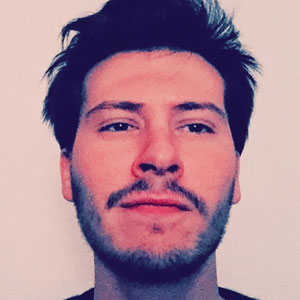
Guido Marco Caronni (CH)
Guido is a Swiss-Argentinian medical doctor with a scientific mind and a strong appetite for creation. After having evolved as a clinician in Internal Medicine in Nyon (CH), Guido Marco currently works in the eHealth and Telemedicine department in Geneva University Hospitals, where he mostly contributes as a researcher in innovation for daily clinical practice and quality of care within the HI5 Lab (Health Informatics for Innovation, Implementation, Integration and Impact).

Jeremy Hofmeister (CH)
Jeremy is a last-year MD student at the University of Geneva. He also holds a MSc degree in neurosciences and pursue research in neuroimaging and machine learning. He has great enthusiasm trying and learning new things, as well as combining his background in medical, computer and cognitive science to challenge medical practice and decision making. Jeremy also enjoys skiing, making music and traveling.

Martin Lacayo-Emery (US)
Martin is a PhD candidate at the University of Geneva working on streamlining the environmental data analysis process using spatial data infrastructure. He worked as an engineer at the Natural Capital Project specializing in the creation of software to quantify ecosystem services, the benefits humans receive from the environment. Previously, he worked on eye tracking analysis, artificial intelligence, and virtual reality, with the common theme of combining diverse methods in novel ways.
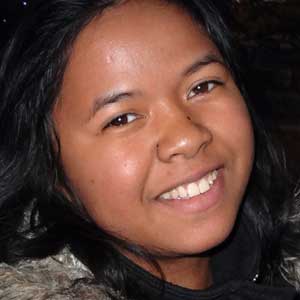
Mirana Michelle Randriambelonoro (MG)
Mirana is from Madagascar. She graduated with a Master degree in Communication Systems at EPFL. She is currently doing a PhD in Information Systems at the University of Geneva, and is working on different development projects in eHealth and Telemedecine lab at Campus Biotech. She is passionate about behaviour change technology that aims to help people adopt healthier habits in the long term. Her research interests include neuroscience, behaviour psychology, Human Computer Interaction. She loves team work and believes sharing ideas is the best source of creativity.
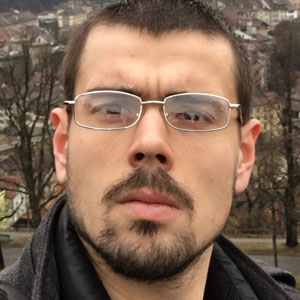
Viktor Khristenko (RU)
Born in Orel, Russia, 1991. Attended MEPHI Department of Cybernetics, then moved to US and graduated from Coe College, Iowa with BA in Physics, Mathematics and CS as a minor. Currently pursuing PhD in Physics at the University of Iowa. Based at CERN since 2014 and working on Compact Muon Solenoid (CMS) Experiment. Lead Data Quality Group within Hadron Calorimeter @CMS. Main interests include software engineering, data analysis, particle detectors. As an undergraduate student, was a member of the college Tennis Team.
Team: uReg
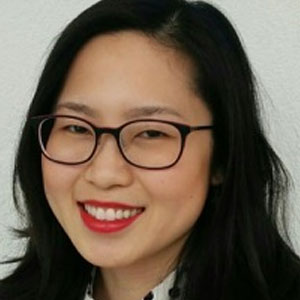
Audrey Yeo (AU)
Eager to stretch, Audrey moved from Australia to Geneva to study a bilingual degree in Economics. She’s a dual-trained pediatric and adult cancer care nurse and has worked in almost every type of care model. Passionate about what’s trending, she now plans to save lives: one economic model at a time. Excited to make health care systems sustainable, and, an amazing place to work, she tells stories through surgical hats when she’s not busting out on calculus. Follow @AudreyYeoCH
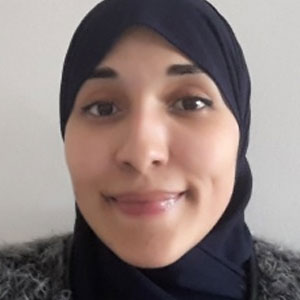
Dalila Salamani (DZ)
Dalila is a computer engineer from Algeria, deeply interested in machine learning, data analysis techniques and the development of new methodologies, algorithms and tools to build revolutionary models. Through the years of developing computer skills, she became fascinated by the combination between computer science and physics and by the way how this science is applied to explain and design a new physical world. It became more and more obvious that computer science-physics (R&D) may lead to her ultimate passion.

David-Zacharie Issom (CH)
David has a Master degree in Health Informatics anda Bachelor degree in Software Architecture. He gained experience in Digital Health and specialized in Mobile Health and Telemedecine at the Norwegian Centre for Telemedicine as well as at the Geneva University Hospitals. Combining his background in medical and computer sciences, he is currently a PhD Candidate in Global Health at the University of Geneva. His research interests are eHealth, Internet of Things and Quantified-Self, Neglected Non-Communicable Diseases, Advanced Human-Machine Interfaces and Knowledge Representation. David enjoys cooking good food and also racing and travelling the world by motorcycle. Follow @bumpy_man
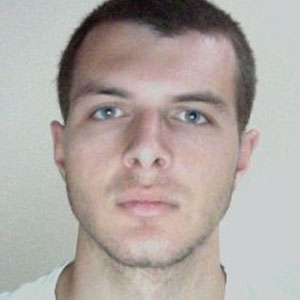
Dimitris Proios (GR)
Dimitris is an undergraduate computer science student in Harokopio University of Athens and starting next year he will be studying in Computer Science department of Geneva. Currently he is working at Cern building a visualization tool demonstrating the collaborations among institutes and companies based on their publications and patents. He always enjoys in contributing to projects that can have impact on daily life.
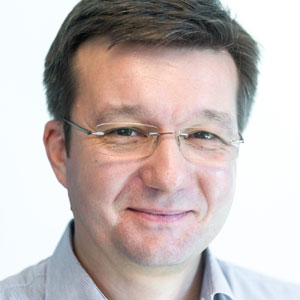
Dusan Milovanovic (RS)
Dušan is a lead end-to-end solutions architect at Ericsson, specialist for ICT architectures, software engineering and data science. As a technology lead, he engages with global Ericsson team to develop disruptive solutions for communication, transport and utility service providers. Aspiring entrepreneur, passionate about developing the solution to enable turning detailed patients’ bio-medical data into medical knowledge. He has BScEE at Belgrade University and a college degree in physics and mathematics.
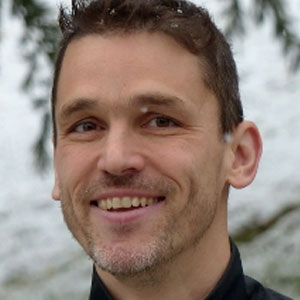
Fabien Petitjean (FR)
Fabien is a Software Engineer born in Berlin of an Italian mother and a French father. When he is not running day and night in the mountain among ibexes, you can find him in front of a black board fighting with mathematical puzzles, or behind his computer screen writing thousands of lines of mysterious code, or drinking an old Rum while debating philosophical questions with his friends. To reconcile his passion for hiking and algorithms, he created the website “http://trail-passion.net“.
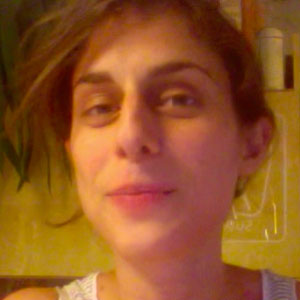
Lorraine Boris (CH)
After graduating in Business Law from Sciences Po, Lorraine worked for l’Imparfaite, a magazine focused on gender and sexuality issues, after which she decided to go learn something important (to her eyes). She became a massage therapist, launched her own business, and is now as well studying at the Geneva School for Health. A very close follower of the collaborative economy, she is passionate about the ways by which one can lead a healthy life, in the broad sense of the term, as our ways of living are impacted by technological innovation. Also, she collects nail-clippers. That’s something to look forward to!

Michael Lawson (UK)
Michael is a healthcare information systems specialist with a background in acute hospital infrastructure management in Geneva; he has also spent many years implementng integrated systems as a service provider for healthcare organisations in the UK and Africa. He has a long standing interest in open source software, and a deep commitment to public standards. He was born in Tanzania, has a degree in Botany, and is an enthusiastic Scottish country dancer.
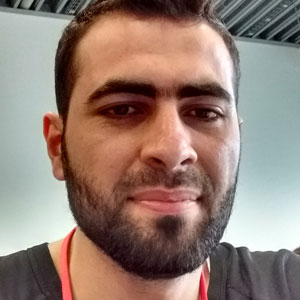
Mohammad Oday Darwich (LB)
Oday is a Computer Science student at University of Geneva with a passion for internet privacy and security and he believe that we should not give up privacy and freedom for the sake of safety. He is Currently working at BRIX company. He is very active and he has an Entrepreneurial passion and he is working on the business concept of a startup idea on CTI Entrepreneurship – the Swiss federal training programme for startup founders.
Team: Dataholics

Albert Buchard (CH)
Albert is a MD-PhD candidate currently doing his PhD in Neuroscience working on the neural mechanisms of structural learning in Geneva. From his experience working as a neurosurgeon and a psychiatrist, he firmly believes in the potential of technological innovation for the care of Neurological diseases. Albert also has a passion for computers, he started programming in primary school and before starting his residency he worked as a web developer in Los Angeles.
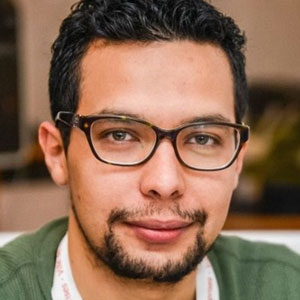
Arturo Sanchez (VE)
Post-doc researcher for the ATLAS experiment at CERN for the University of Naples, Italy. With studies in physics and computer sciences, Arturo has been developing research and educational activities for the last seven years. Native of Venezuela, he has studied and worked as researcher and professor in several Universities in Venezuela, France and Italy. Currently, he is working in data analysis and outreach activities linked to the High Energy Physics field at CERN in Geneva, together with other collaborators around the World, including Latin-American partners.

Catherine Sykes (AU)
Catherine is a Senior Research Fellow with the Faculty of Health Sciences, the University of Sydney, Australia where she works on the development of classifications for health information systems. She is a physiotherapist who has lived and worked in Australia, the USA and the UK as well us undertaking short commissions on low and middle income countries. Catherine is keen to ensure that the views and experiences of people with disabilities are well represented in health data.
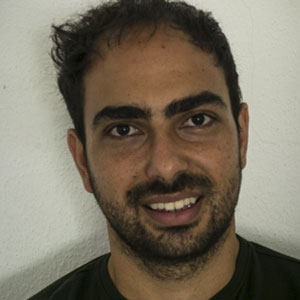
Davide Alocci (IT)
Trained as a Computer engineer at the University of Siena, Davide is an Italian technology enthusiast. During an internship for the Master’s thesis, he discovered Bioinformatics and it was love at first sight. After taking his Master in Computer Engineering he decided to leave Italy and he ended up in Geneva. Davide is now a Marie Curie Early Stage Researcher at Swiss Institute of Bioinformatics within the Proteome Informatics Group, and develops software for glycomics and glycoproteomics analysis.
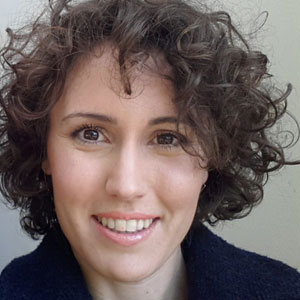
Ioanna (Yanna) Mylonaki (GR)
Yanna is a phD student at the pharmaceutical department of the university of Geneva. During her undergraduate studies in Athens she got involved in the development of nanotechnological polymeric platforms for targeted drug delivery. Currently she produces sustained release formulations for the treatment of cardiovascular diseases.
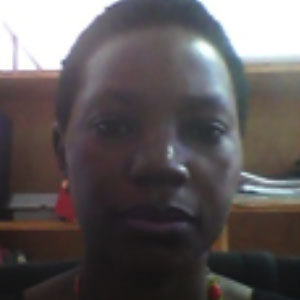
Janet Michel (CH)
Janet comes from a Nursing background with a degree in Nursing Education and Health Services Management. She has a Master’s degree in Public Health and is currently enrolled for a PhD at the University of Basel. She has worked in public health systems in Zimbabwe and South Africa. She spent the last five years working as a researcher at Africa Centre for research and population health in South Africa. She has a particular interest in policy implementation, identifying reasons and challenges that lead to policy implementation failure. Her interest lies in Health Systems Strengthening especially Leadership and Management with particular focus on interventions that contribute positively to patient and managerial outcomes in a Primary Health Care System.

Lisa Laroussi-Libeault (FR)
Lisa has a varied and substantive experience in the field of Development, Peace building and Humanitarian issues, including field experience with the United Nations System in Africa and the Caribbean especially in fragile states and post-disaster situations (DRC, HAITI). Based in Geneva she is currently developing a web platform to effectively improve aid workers wellness to assist in the most efficient way communities and people affected by crisis and ultimately deliver accountable and high-quality humanitarian action.
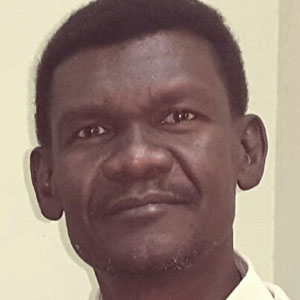
Mohamed Hassan Osman El Mahi (SD)
Mohamed Hassan Osman lives in Khartoum, is married, has 3 sons and 2 daughters. He graduated from University of Khartoum Faculty of Medicine and has a MBBS Bachelor (Medicine & surgery). After graduation he worked as house officer at Soba University Hospital and as a medical officer in different regions in Sudan. He started working at the National Health Insurance Fund (NHIF) as Quality Director, Director of Health services general directorate, and Director of Statistics & Information as well as Executive Director (Red Sea state and South Dar Fu r). Now he works as the director of states’ affairs at NHIF headquarter.
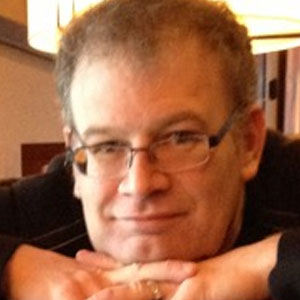
Philippe Boucher (CA)
Philippe is a technical officer at the World Health Organization in Geneva. His areas of work at WHO include health information systems, electronic information standards, and data dissemination and publication. He is originally from Canada and holds an M.Sc in computer science from McGill university in Quebec.
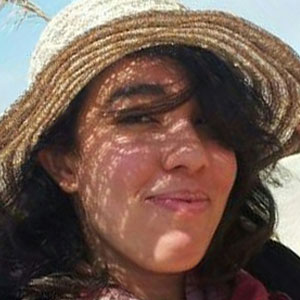
Sabrina Amrouche (DZ)
Sabrina recently graduated with a master in computer science, she is currently doing a research internship at the Blue Brain Project. Before that she was a CERN Openlab student working with Apache Mesos for data analytics. Her main field of interest are data mining and machine learning. She is eager to take part in the OGH 2016.

Sean Carroll (IE)
Originally from Melbourne, Sean is a software engineer who has worked across many vertical industries around the world. He recently led development of a bioinformatics platform for a biotech startup, and has also worked at Médecins Sans Frontières. He is currently working at a Swiss university.
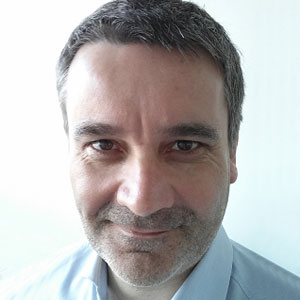
Serge Billieux (CH)
Serge is Swiss and French and has graduated from Ecole des Mines in Nancy and ESSEC in Paris. He has started his career as financial analyst on bonds then hedge funds before moving to financial IT. For the last 11 years he’s been running Soft-Finance SA in Geneva and leading the development of its data management platform. This tool is offering a new level of productivity in more and more domains, and has integrated many – usually ‘siloed’ – functionalities thanks to a unifying business object model. Serge loves many sports and lateral thinking.
Team: WECARE!
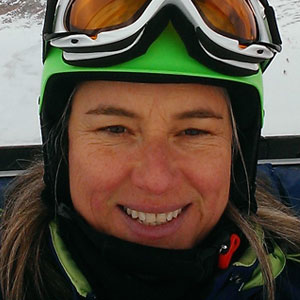
Biliana Vassileva (BG)
Biliana Vassileva is a coach and social entrepreneur with a passion for social justice. She aspires to create conditions for interdisciplinary, cross-cultural and cross-generational teams to perform at their individual and collective “best” in order to discover and prototype new solutions to persisting social problems.
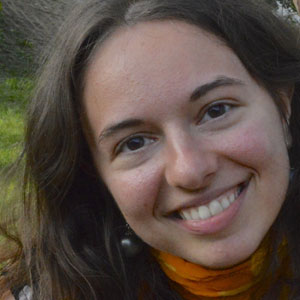
Bianca-Cristina Cristescu (RO)
Originally from Romania, Bianca-Cristina finished her Bachelor in Computer Science at the university of Manchester. Having finished a technical studentship at Cern during her Bachelor degree, she returned to Cern working for the data analysis framework developed, ROOT, and its interpreter Cling. Her Bachelor thesis focused on a numerical optimiser used in medical applications, thus her interest is in applying Machine Learning in medical/heath systems.

Frank Villaro-Dixon (ES)
After having finished his bachelor in computer science, 23 years old Frank is actually in his second year of his master in environmental sciences (UniGE) where he is studying on how to inform the public effectively on hydro ressources; he beleives that a carbon-free energy can be acheived via decentralization. Multidisciplinary at heart, his ranges of interest vary from programming to energy, electronics, science, mechanics and climbing (though he prefers rappeling from cranes).
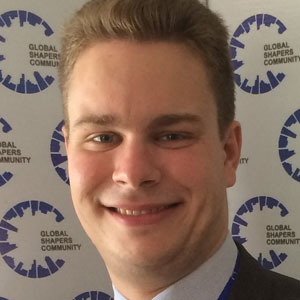
Giovanni Porcellana (IT)
Giovanni works at CERN, as Knowledge Transfer Officer, implementing CERN technologies into society, in particular in Medical Applications. Before he worked at CERN with TERA Foundation, focusing on particle accelerators for cancer treatment. He co-founded Bizanami, a web-based service helping aspiring entrepreneurs starting their own businesses, and he is part of the Global Shapers Community, in Geneva and Turin.
Giovanni is a Nuclear Engineer who studied in Italy, Sweden, the Netherlands and UK.

Jonathan Moy de Vitry (CH/US)
Jon is a Swiss/American, hands-on innovation specialist. Although trained in management, he was raised by an organic chemist and inherited a deep passion for science and technology. Hackathons are one of his favorite pass times and some of his past projects include a virtual reality simulation of mental disorders and a next-generation body bag.

Kevin Koh (SG)
Kevin is a specialist in international human rights and sustainable development which he is actively seeking to apply in technology-based social innovation. Currently working at the United Nations Office of the High Commissioner for Human Rights (UN OHCHR), his areas of expertise include: children’s rights; women’s rights; the inter-dynamics between international economic law and policy with human rights; and, migration and human rights.
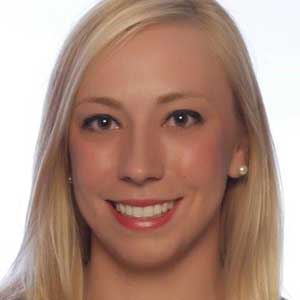
Michela Paganini (IT)
Michela (@WonderMicky) is a Physics PhD student at Yale University. She works for the ATLAS Experiment at CERN on the di-Higgs hunt & software development for particle ID. Astrophysicist by training but data scientist by passion, she supports the adoption of modern machine learning in HEP. She strongly believes in open science, and is always looking for new opportunities to apply her knowledge of AI to other fields.

Olivier Schmid (CH)

Rachel Burns (US)
Rachel Burns works in the Migrant Health Division of the International Organization for Migration (IOM) in Geneva. Her background is in global health and medical anthropology. Rachel gets excited about combining innovation and technology to solve health care delivery problems at both the local and global level.
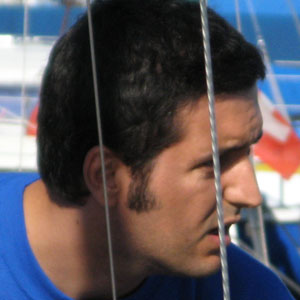
Silvestro Di Luise (IT)
Silvestro received a PhD in particle physics from University of Rome. Since then he joined several research projects around the world. As a scientist at the Swiss Federal Institute of Technology (ETH) he works on detector R&D, data analysis and software development trying to discover new physics with neutrino experiments at CERN, in the US and in Japan. He gets enthusiast every time he discovers new challenges for applying tech and data science outside particle physics.
Team: MEDYAS
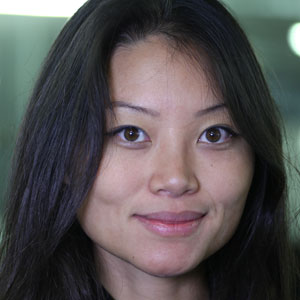
Anh Nguyen (FR)
Anh is a physiotherapist trained in Nantes, France. After 5 years of practice, passionate with new technology she decided to go back study in order to develop new skills. She is currently finishing her master degree in computer sciences at the university of Geneva. With both competences in medical and computer sciences, she aims to link both areas in order to improve health with new technology to bring more harmony for the wellbeing of the people.

Benjamin Frisch (AT)
Benjamin’s interest lies in the identification of unmet clinical needs and the elaboration of novel solutions based on cutting-edge technology. Having studied physics in Vienna and written his PhD on medical imaging at CERN, he now manages the Interdisciplinary Research Laboratory at the chair for Computer Aided Medical Procedures at TU Munich. He seeks a multidisciplinary collaborative approach with clinical and industrial partners to contribute to improving the quality of healthcare.

Julian Klug (DE)
Originally from Germany, Julian is now a third-year Medical student at the University of Geneva with a passion for both engineering and programming. His research interests lie in fundamental and applied neurology. When not in classes, he also enjoys teaching, as well as arguing about everything ranging from art to philosophy and politics.
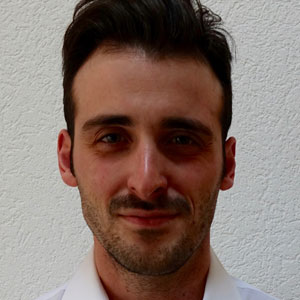
Matteo Macchini (IT)
Matteo Macchini holds a Master’s Degree in Robotic Engineering from the University of Pisa. He worked on his thesis in CERN, designing and developing a control system for an electro-mechanical system used for the beam profile evaluation. After his graduation, he remained at CERN and is now working as an engineering fellow, developing data analysis tools for measures on superconducting magnets. He also holds a Bachelor’s degree in Electronical Engineering and is passionate about everything that concerns science and technology, he’s always looking for new and exciting fields to apply his knowledge and learn new things.
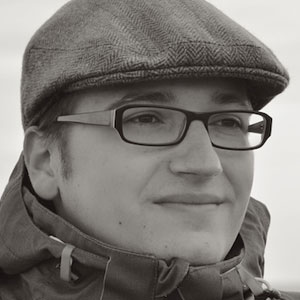
Mihail Anton (RO)
Mihail is researching protein misfolding in Alzheimer’s disease with big data, while working on his master’s thesis on protein folding. In Sweden he obtained his B.Sc. in software engineering, afterwards pursuing computer science at Chalmers University. Being a technical student at CERN for one year cemented his vision about meaningful impact by blending technology in a creative way. Mihail thrives in diverse collectives and is passionate about helping others efficiently.
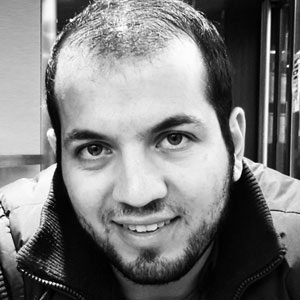
Mohammad Rasool Vaziri Sereshk (IR)
Mohammad is a Mechanical Engineer with MSc degree from Politecnico di Torino in Italy. He is currently working as design and development engineer for TERA Foundation at CERN, in which he designs the mechanical layout for novel hadrontherapy gantries and develops different solutions used in cancer treatment. He also has a strong interest in nanotechnology science and its implementation to biomedical and energy fields. His desire to improve public welfare by focusing on community collaboration has led him to humanitarian projects where he employs his expertise in engineering and healthcare technologies for boosting innovative ideas.
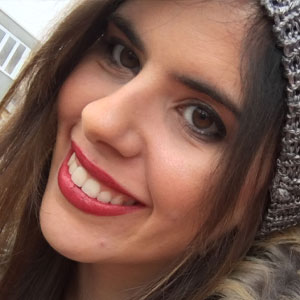
Neuza Nunes (PT)
Neuza is a Biomedical Engineer from Portugal. In her early career she was a scientific software engineer, developing applications for research, sports and healthcare. During that time she specialised in signal processing and machine learning, having many research publications on the topic. She recently moved to Zürich, and is working now as a web developer for e-commerce websites. In parallel she is also a Book Editor for un upcoming research book on machine learning applications.

Peter Joller (CH)
After his biology studies Peter wrote his doctoral thesis in the immunology lab of Jean Lindenmann (discovered the Interferons in 1956). He was assistant to Prof. Lindenmann for 2 years and worked afterwards for 13 years at the University Children’s Hospital Zurich (Prof. Walter Hitzig), specializing in Immunology, Hematology and Oncology. From 1985 to 1999 together with colleagues he led a Contract Research Laboratory near Zurich. 2000-2005 private Medical Diagnostics Laboratory Zurich. 2005-2010 Pentapharm Basel. Since 2010 he owns a Consulting Company for clinical trials, Clinical Immunology FAMH.









